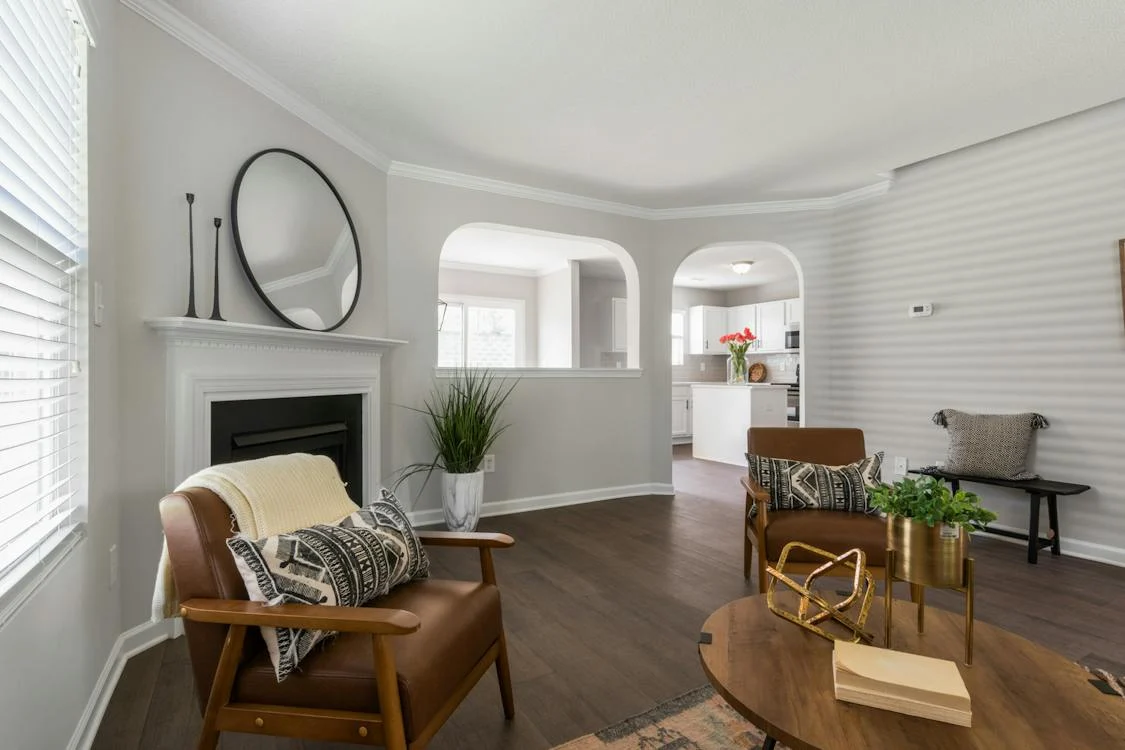Are you tired of feeling overwhelmed by the clutter in your living space? Do you find it challenging to stay organized and maintain a sense of serenity in your home? If so, it may be time to consider decluttering and embracing minimalist principles.
Minimalist Principles in 2024
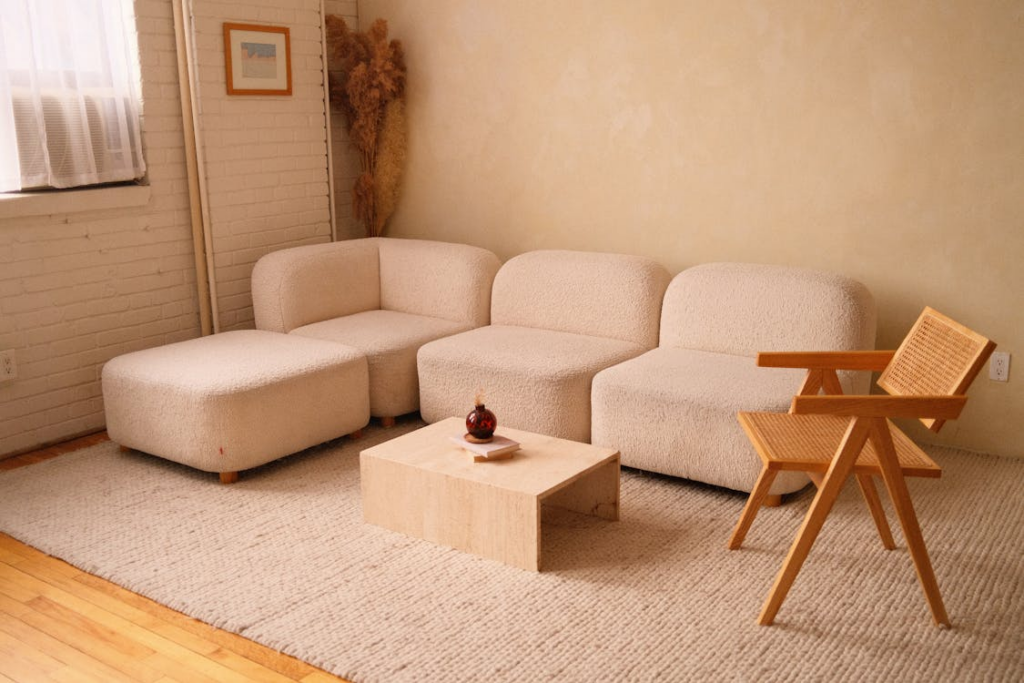
In this article “Decluttering 101: Simplifying Your Living Space with Minimalist Principles in 2024”, we will explore the concept of decluttering and how it can simplify your living space. We’ll discuss the financial impact of disorganization, storage unit statistics, and the frustrations that come with clutter. Additionally, we’ll delve into the numerous benefits of decluttering, such as saving time and effort, reducing stress and anxiety, and improving sleep quality.
But what exactly does it mean to embrace minimalist principles? We’ll explain the idea of intentional living, saving money, and the reduced stress and anxiety that come with minimalist practices. Finally, we’ll provide practical tips on how to create a minimalist environment, including tidying up and enhancing mental clarity.
So, whether you’re looking to declutter your home, reduce stress, or create a calm and serene living space, this article will guide you through the process. Are you ready to simplify your life and experience the benefits of a minimalist lifestyle? Let’s get started!
The Cost of Clutter

Introduction
Clutter. We all have it to some extent, whether it’s that overflowing junk drawer or the piles of clothes we’ve been meaning to donate. But have you ever stopped to think about the true cost of all that clutter? Surprisingly, it’s not just the physical space it takes up in our homes; clutter actually has a financial impact as well. In this article, we’ll explore the different ways that clutter can impact our lives and our wallets.
Financial Impact of Disorganization
When it comes to clutter, it’s not just a matter of having a messy house. The disorganization and clutter can actually have a tangible effect on our finances. Here are a few ways clutter can impact us financially:
- Decreased productivity: When our space is cluttered, it’s harder to find what we need, leading to wasted time and decreased productivity. Whether it’s searching for important documents or rummaging through a cluttered pantry to find ingredients for a meal, time spent dealing with clutter is time that could have been spent on more productive activities.
- Missed opportunities: Clutter can cause us to miss out on opportunities, both personally and professionally. For example, if our home is cluttered, we may be less inclined to invite friends or family over, leading to missed social connections. On a professional level, clutter can make it difficult to focus and stay organized, potentially impacting job performance and career opportunities.
- Impulse spending: Clutter can make it harder to keep track of what we actually have, leading to duplicate purchases or unnecessary spending. When we can’t find that specific item we need, we may be more inclined to buy a replacement, resulting in wasted money and increased financial strain.
These are just a few examples of how clutter can impact our finances. The key takeaway here is that clutter is not just a cosmetic issue; it can have real financial consequences.
Storage Unit Statistics
To get a sense of the scale of the clutter problem, let’s take a look at some storage unit statistics:
- 11.1% of U.S. households rent a storage unit: This statistic shows that many households are turning to storage units to deal with their excess belongings.
- 18% of people renting a storage unit have a four-bedroom home (or larger): This finding suggests that even those with spacious homes are not immune to the need for additional storage space.
These statistics highlight the extent to which clutter is impacting our lives. Renting storage units has become a common solution for dealing with excess stuff, indicating that many people are struggling to manage their belongings within their own homes.
Overwhelm and Pet Peeves
Clutter not only has financial implications but can also lead to feelings of overwhelm and irritation. Here are a few statistics that shed light on the emotional impact of clutter:
- 46% of Americans feel overwhelmed with clutter in their homes: This statistic emphasizes how clutter can contribute to feelings of overwhelm and stress.
- Clutter is the biggest pet peeve of homeowners: A survey found that clutter ranked higher than other common annoyances, such as loud neighbors or dirty dishes in the sink.
- 43% of people are not happy with the organization of their homes: This statistic shows that many individuals are dissatisfied with the state of their living spaces, highlighting the need for effective clutter management strategies.
These findings illustrate the emotional toll that clutter can take on individuals and families. It’s not just about the physical items; clutter can impact our mental well-being and overall satisfaction with our living environments.
As we can see, clutter goes beyond surface-level messiness. It has a significant financial impact, contributes to the need for storage units, and affects our emotional well-being. In the next sections, we’ll explore practical strategies for tackling clutter and reclaiming our space and finances. So, let’s delve into the world of decluttering and discover how we can regain control, eliminate the financial burden, and create a more organized and peaceful living environment.
Also Read: The Benefits of Minimalism in 2024 : Decluttering Your Mind and Space.
Benefits of Decluttering
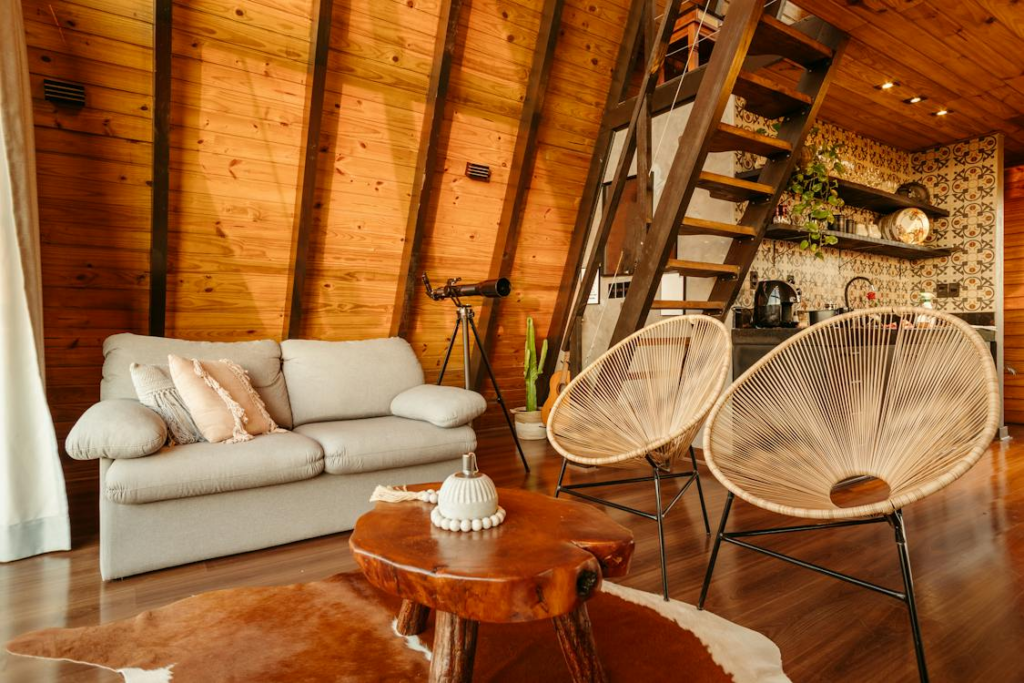
Decluttering can bring about a multitude of benefits that extend beyond just having a tidy and organized living space. From saving time and effort to reducing stress and anxiety, the advantages of decluttering are numerous and impactful.
Time and Effort Saved
One of the most apparent benefits of decluttering is the time and effort it saves. By getting rid of unnecessary items and reducing clutter, you create a streamlined and efficient living environment. Here’s how decluttering can help save time:
- Quicker and easier cleaning: With less stuff to clean and organize, tidying up becomes a breeze. You can spend less time dusting, sorting, and rearranging and more time doing things you actually enjoy.
- Efficient daily routines: Without the constant distraction of clutter, you can navigate through your morning and evening routines more smoothly. Finding what you need becomes easier, whether it’s picking out an outfit or locating your keys before heading out the door.
- Reduced searching for misplaced items: Ever spend ages looking for your phone or that important document? Decluttering can help minimize these frustrating situations. Studies show that the average American spends 2.5 years of their life searching for lost or misplaced items. By decluttering, you create a home where everything has its place, making it easier to locate items when you need them.
Reduced Stress and Anxiety
Living in a cluttered environment can have a negative impact on your mental well-being. Decluttering provides numerous benefits when it comes to reducing stress and anxiety:
- Enhanced mental clarity: Clearing out physical clutter can lead to enhanced mental clarity. When your environment is free of distractions, you can focus better and think more clearly.
- Reduced stress levels: A clutter-free space promotes a sense of calm and reduces stress. Studies have shown that cluttered environments can contribute to increased stress hormones. By decluttering, you can create a peaceful sanctuary where you can unwind and relax.
- Relieves anxiety: The act of decluttering itself can be therapeutic and help alleviate anxiety. Making intentional decisions about what to keep and what to let go of can provide a sense of control and accomplishment.
Improved Sleep Quality
Decluttering can also improve your sleep quality, leading to more restful nights and better overall health. Here’s how:
- Eliminates sleep distractions: A clutter-free bedroom creates a tranquil sleep environment. Removing excess items and organizing your sleeping space helps create a calming atmosphere conducive to a good night’s rest.
- Reduced mental stimulation: Clutter can overstimulate the brain and make it difficult to relax before bed. By decluttering, you create a more peaceful ambiance, which can lead to improved sleep quality.
- Promotes a sense of relaxation: Waking up to a tidy room can set a positive tone for the day ahead. By decluttering your bedroom, you create a peaceful sanctuary where you can begin and end each day on a calm note.
Incorporating decluttering into your life can have a profound impact on various aspects, from saving time and effort to enhancing your mental well-being and sleep quality. So why not start today and experience the transformative power of decluttering for yourself?
Minimalist Principles
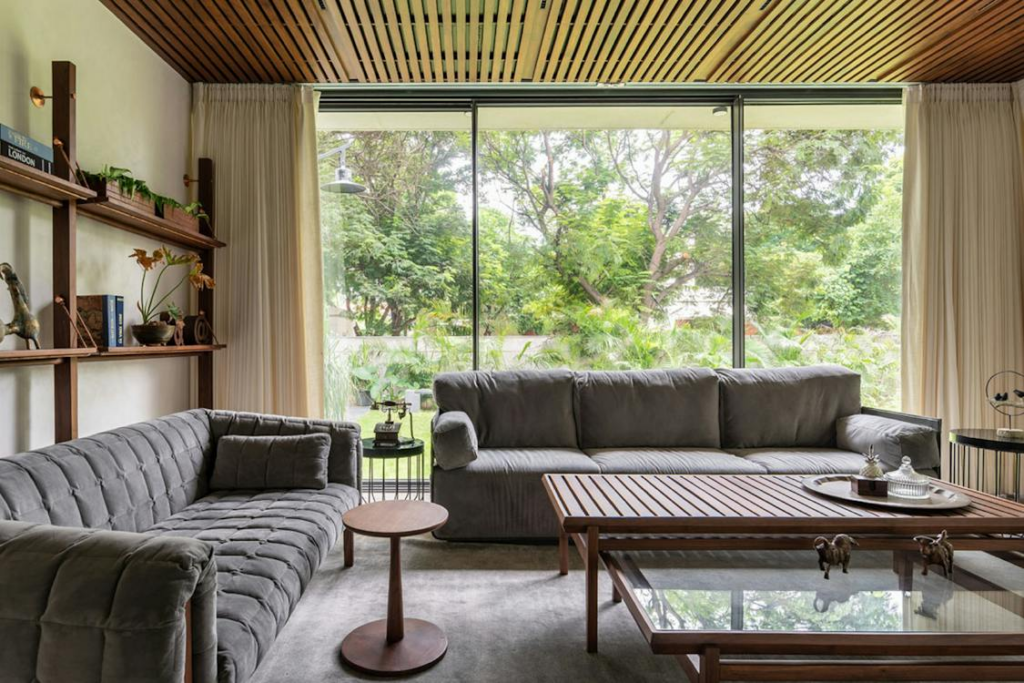
In today’s fast-paced and consumer-driven world, many individuals are seeking a simpler and more intentional way of living. Minimalism, a lifestyle movement that emphasizes decluttering and simplifying one’s possessions and daily routines, has gained significant popularity in recent years. Inspired by the desire to prioritize what truly brings joy and purpose, minimalism offers a myriad of benefits that go far beyond just a tidy home. Let’s explore three key principles of minimalism and how they can positively impact your life.
Intentional Living
At the heart of minimalism is the concept of intentional living. Rather than mindlessly accumulating material possessions, minimalists make deliberate choices about what they bring into their lives. They focus on quality rather than quantity, ensuring that each item they own has a specific purpose or brings them genuine happiness. By adopting this mindset, minimalists are able to align their actions with their values, paving the way for a more fulfilling and purpose-driven existence.
Saving Money
Contrary to popular belief, minimalism isn’t just about getting rid of stuff; it’s also about reevaluating our spending habits and making conscious financial decisions. When we limit our impulse purchases and only buy what we truly need or value, we can significantly reduce unnecessary expenses. By embracing minimalism, individuals can save money in various ways:
- Avoiding impulse shopping: Minimalists carefully evaluate their purchases, avoiding impulsive buying and focusing on what aligns with their values.
- Reducing clutter: Minimalism promotes decluttering our homes and spaces, resulting in a better understanding of what we actually own and need. This clarity prevents unnecessary duplicate purchases.
- Curbing consumerism: With fewer material possessions, minimalists often find that they are less reliant on the constant pursuit of the latest trends. This shift in mindset allows them to break free from the cycle of consumerism and save money in the long run.
Reduced Stress and Anxiety
In a world filled with constant stimulation and endless options, many people find themselves overwhelmed and stressed. Minimalism offers a way to alleviate these pressures by simplifying our lives and reducing the mental and physical clutter that can contribute to stress and anxiety. Here’s how minimalism can help:
- Clearing physical space: By decluttering our homes and workspaces, we create an environment that is free from excess and promotes calmness and focus.
- Simplifying choices: With fewer possessions, minimalists are not burdened with decision overload. This can bring a sense of relief and reduce the anxiety associated with too many choices.
- Shifting focus to experiences: Rather than chasing after material possessions, minimalists value experiences and meaningful connections. This shift in priorities allows them to focus on what truly matters and find joy in the simple pleasures of life.
As you can see, minimalism offers a multitude of benefits that extend beyond just decluttering physical spaces. By adopting a minimalist mindset and intentionally curating our lives, we can experience increased fulfillment, financial freedom, and reduced stress and anxiety. Whether you’re looking to simplify your home, your schedule, or your mindset, embracing minimalism can be a transformative journey towards a more intentional and joyful life. So why not give it a try?
Creating a Minimalist Environment
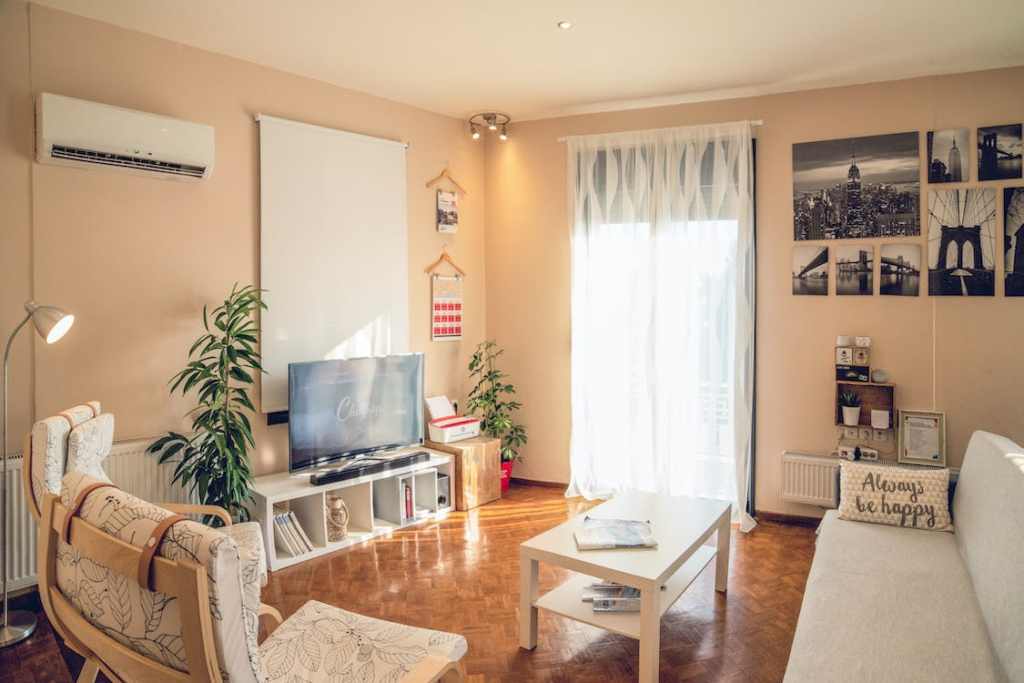
In a world filled with clutter and distractions, many people are turning to minimalism as a way to simplify their lives and create a sense of calm. A minimalist environment is characterized by simplicity, organization, and a focus on what truly matters. It’s a space that promotes clarity of mind and reduces stress. If you’re looking to transform your living space into a minimalist haven, here are a few key steps to get you started:
Tidying Up
One of the first steps in creating a minimalist environment is decluttering your space. This involves going through your belongings and getting rid of things that no longer serve a purpose or bring you joy. Here are some tips for effective tidying up:
- Start with one area at a time: Whether it’s a specific room or a single drawer, tackling one area at a time will prevent you from feeling overwhelmed.
- Use the KonMari method: Made famous by organizing expert Marie Kondo, the KonMari method involves sorting through your belongings by category (such as clothing, books, and sentimental items) and keeping only those that spark joy.
- Consider donating or selling items: If an item no longer serves a purpose for you but is still in good condition, consider donating it to a charity or selling it to someone who could make better use of it.
Enhancing Mental Clarity
A minimalist environment goes beyond just physical clutter. It also focuses on promoting mental clarity and reducing distractions. Here are some strategies to enhance mental clarity in your space:
- Designate a specific workspace: If possible, create a dedicated area for work or study that is free from distractions. This will help you focus on the task at hand and be more productive.
- Limit visual clutter: Keep surfaces clear of unnecessary items and opt for simple and clean designs. This can create a visually calming space and allow your mind to relax.
- Incorporate natural elements: Bringing elements of nature into your space, such as plants or natural materials, can have a positive impact on your mood and overall well-being.
In conclusion, creating a minimalist environment is a journey that requires intentional actions and a shift in mindset. By tidying up and enhancing mental clarity, you can transform your living space into a peaceful sanctuary that fosters calmness and encourages mindful living. Embracing minimalism is not just about having a neat and organized space, but also about creating a space that aligns with your values and promotes a sense of contentment. So, take the first step towards minimalism today and experience the benefits for yourself.
Also Read: Decluttering 101: Simplify Your Living Space.
Conclusion
In conclusion, embracing minimalist principles and decluttering your living space can have a profound impact on your life. By adopting intentional living, saving money, and reducing stress and anxiety, you can create a calming and clutter-free environment that promotes mental clarity and a sense of peace. Say goodbye to the overwhelming burden of excess belongings and welcome in a simpler, more streamlined way of living.
If you’re ready to embark on your minimalist journey, consider seeking guidance from Minimalist Home Guru. With their expertise in decluttering and creating a minimalist aesthetic, they can provide valuable insights and assistance in transforming your living space. Visit their website at minimalisthome.guru to explore their services and discover how they can help you achieve your minimalist goals.
To get access to more information and articles, read Designing a Minimalist Kitchen : Streamlined Ideas for a Clutter-Free Space in 2024.
Frequently Asked Questions
- What is minimalism and how does it relate to decluttering?
Minimalism is a lifestyle that focuses on living with fewer material possessions, simplifying one’s life, and prioritizing what is truly important. Decluttering is a process of removing unnecessary items and organizing your living space, which aligns with minimalism principles. - Why is decluttering important for achieving a minimalist lifestyle?
Decluttering is important for achieving a minimalist lifestyle because it helps in eliminating excess items that may cause clutter, stress, and overconsumption. It allows you to create a clean, organized, and peaceful living space that promotes simplicity and intentionality. - How can I start decluttering my living space?
o start decluttering your living space, you can begin by sorting your belongings into categories, such as keep, donate, sell, or discard. Assess each item’s usefulness, sentimental value, and whether it aligns with your minimalist goals. Gradually work through each area of your home, focusing on one room or category at a time. - What are some practical tips for organizing and maintaining a clutter-free living space?
Some practical tips for organizing and maintaining a clutter-free living space include: 1. Regularly declutter and reevaluate your belongings, 2. Adopt a ‘one in, one out’ rule for new purchases, 3. Maximize storage with labeled containers and organizers, 4. Establish a cleaning routine, and 5. Embrace a minimalist mindset by resisting impulse buying and focusing on experiences rather than material possessions. - What are the benefits of adopting a minimalist lifestyle?
Adopting a minimalist lifestyle offers numerous benefits, such as reduced stress, increased focus and clarity, improved productivity, enhanced creativity, saved time and money, improved relationships, and a greater appreciation for the things that truly matter in life.

